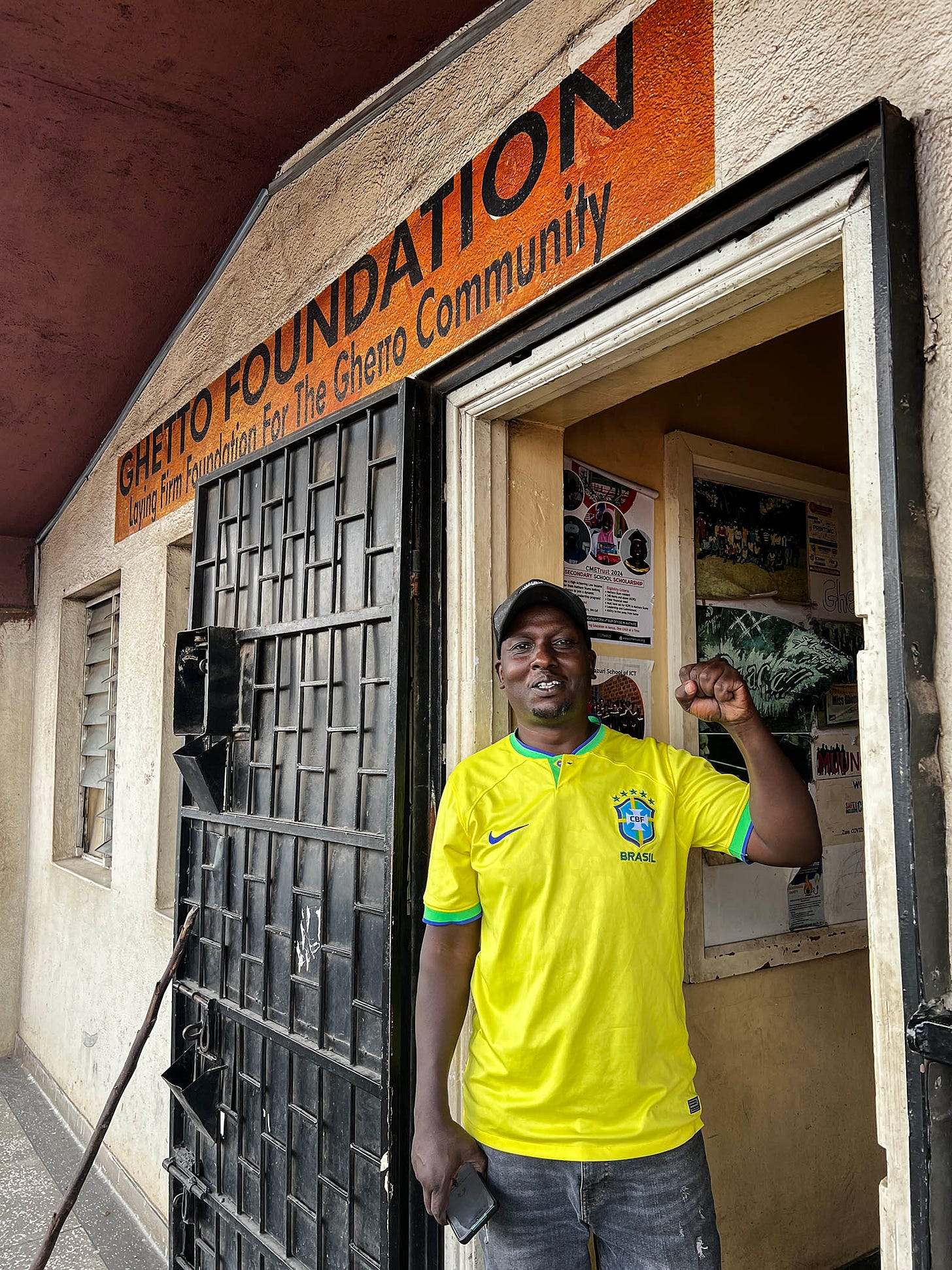Stuck with a ‘lazy’ government, Mathare is reclaiming the spirit of harambee
Harambee, the Kenyan philosophy of mutual and communal aid, has given residents a lifeline.
Jacqueline Kubania

The Kenyan government’s reaction to recent deadly floods has been so ineffective that the Kenya Human Rights Commission, a watchdog NGO, sued several government agencies and officials for what it called “a lazy response”.
A month after the deadly rains, bulldozers are pulling down the remaining buildings on the banks of the Mathare river. It was here, in the low-income settlement named for the river, where dozens of people were killed in April when the river burst its banks.
Onlookers watch the demolitions with resentment. It is quick work: most of the structures are little more than iron sheets held together by grit and gumption. A new directive says that nobody can build within 30 metres of the river – too late for those who died or lost their homes.
“The government has not offered people an alternative place to resettle,” says Samuel Kiriro, a community organiser working with Ghetto Foundation in Mathare. “Where are the hundreds of families who have lost their homes to floods and demolitions going to go without support?”
Demonstrations to air such concerns have only resulted in arrests. Kiriro himself recently spent a day behind bars for protesting.
“This is how things have always happened in Mathare,” he says. “Injustice after injustice. And if you speak up, you become a target for illegal arrests and police intimidation. The government has positioned itself as an oppressor of the people, so we have learnt to organise and show up for ourselves.”
Among those who are showing up is Hanifa Adan, who has raised more than a million Kenyan shillings (about $7,700) through social media to respond to requests for help from people in the worst-affected areas of the city, including Mathare.
“The government has been so underwhelming,” Adan says. “They visited affected areas afterwards for photo ops but they genuinely do not care and there are so many victims still helpless out there.”
Private initiatives have distributed cartons of food, clothes, mattresses, utensils, and school supplies for children in displaced families or direct cash transfers to affected people. It’s all in the spirit of harambee, the Kenyan philosophy of mutual and communal aid.
“The response I’ve received has been amazing,” says Adan. “We raised 100k in an hour – I’m truly in awe of how selfless and loving Kenyans are.”
Historians and culture scholars credit first president Jomo Kenyatta for popularising harambee, a Swahili word meaning to “pull together”. It is the official motto of Kenya, and appears on its coat of arms. In an essay in The Elephant, cultural scholar Dr Joyce Nyairo says that “in Jomo Kenyatta’s day, development was understood as physical infrastructure and his new motto urged communities to join hands in building schools, establishing a dispensary, a maternity ward, or providing staff housing”.
People would gather and contribute money for these projects, understanding that the responsibility of building the country was a shared one. But the spirit of harambee was later bastardised by politicians who would demonstrate their largesse and buy the approval of the people – giving money instead of doing the hard work of governance.
Kenya’s third president Mwai Kibaki banned officials from participating in harambees, which people celebrated as progress. Kibaki was famously modest, shunning vanities like putting his portrait on bank notes or naming roads and institutions after himself.
With current President William Ruto, however, state-sponsored harambees seem to be making a comeback. So too have mounting concerns over misappropriation of funds and government inefficiency.

Despite warnings by the meteorological department issued last year, the floods caught the government flat-footed, with no clear explanation for how billions set aside for flood mitigation and response have been spent.
In Mathare, many people displaced by the floods say they have not yet received the KSh10,000 ($77) promised by the government to aid them. Instead, they are relying on the remnant of the original harambee spirit: the generosity of their neighbours and well-wishers to feed their families and get back on their feet.



